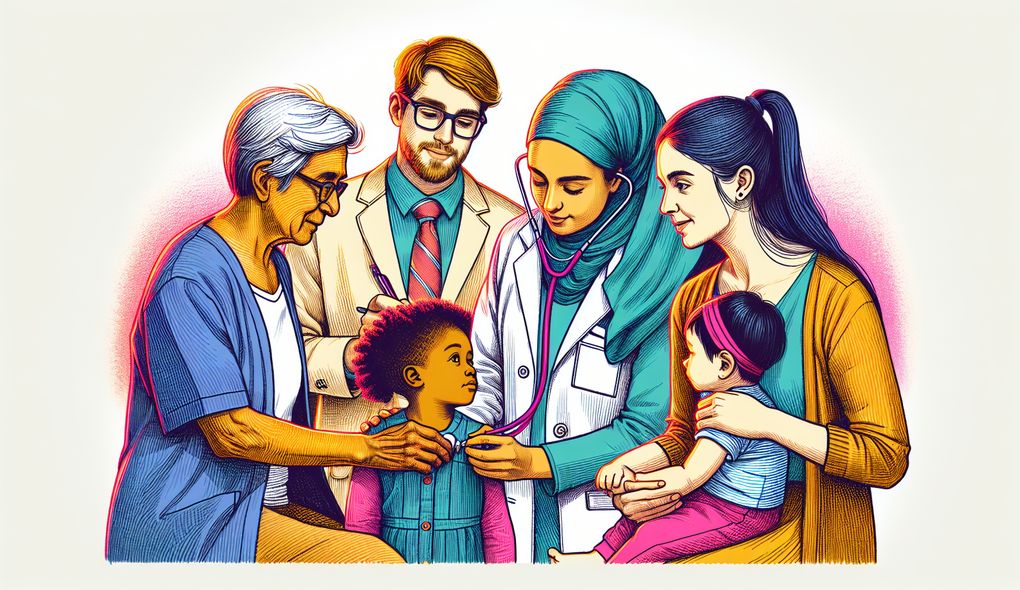What strategies do you use to build rapport and establish effective relationships with patients and their families?
INTERMEDIATE LEVEL

Sample answer to the question:
To build rapport and establish effective relationships with patients and their families, I use active listening skills to understand their concerns and needs. I make sure to address any questions or uncertainties they may have in a clear and empathetic manner. Additionally, I strive to create a comfortable and welcoming environment, ensuring that patients and their families feel valued and respected. I also emphasize the importance of open communication, encouraging patients and their families to actively participate in their healthcare decisions. Overall, my goal is to build trust and create a partnership with patients and their families, working together towards their well-being.
Here is a more solid answer:
To build rapport and establish effective relationships with patients and their families, I utilize a combination of active listening skills, clear communication, empathy, and patient-centered care. For example, during my previous role as a Family Nurse Practitioner, I encountered a patient who was anxious about a surgical procedure. I took the time to listen attentively to their concerns and provided them with detailed information, addressing their fears and ensuring they felt informed and supported. Additionally, I make a conscious effort to create a welcoming environment by greeting patients and their families with a warm smile and friendly demeanor. I understand the importance of empathy in healthcare, and I always strive to put myself in the patient's shoes, treating them with compassion and understanding. Lastly, I strongly believe in a patient-centered approach, involving patients and their families in decision-making and tailoring their care to their individual needs and preferences.
Why is this a more solid answer?
The solid answer includes specific examples of past experiences and details about utilizing active listening, clear communication, empathy, and patient-centered care. It demonstrates the candidate's ability to effectively build rapport and establish relationships. However, it could still be improved by linking their strategies to the evaluation areas mentioned in the job description.
An example of a exceptional answer:
Building rapport and establishing effective relationships with patients and their families is a top priority for me. I employ various strategies to achieve this, starting with active listening to gain a deep understanding of their concerns and preferences. For example, during a recent clinical rotation, I had a patient with a complex medical history and multiple chronic conditions. By actively listening and collaborating with the patient and their family, I was able to develop a comprehensive care plan that addressed their specific needs while considering their lifestyle and personal goals. Clear and empathetic communication is also crucial in building relationships. I strive to explain medical information in a jargon-free manner, ensuring that patients and their families have a complete understanding of their diagnosis, treatment options, and potential risks. Furthermore, I emphasize the importance of involving patients and families in shared decision-making, empowering them to actively participate in their healthcare journey. By practicing patient-centered care, I establish a sense of trust and collaboration that strengthens the therapeutic relationship.
Why is this an exceptional answer?
The exceptional answer goes in-depth into the candidate's strategies for building rapport and establishing relationships. It provides specific examples of past experiences and highlights the candidate's ability to actively listen, communicate clearly and empathetically, and practice patient-centered care. It also demonstrates a strong understanding of the importance of involving patients and families in healthcare decisions. The inclusion of a recent clinical rotation example adds credibility to the answer. The candidate addresses all the evaluation areas mentioned in the job description, making it a well-rounded and exceptional response.
How to prepare for this question:
- Practice active listening skills by engaging in conversations and actively summarizing what the other person has said.
- Study effective communication techniques and strategies, such as using open-ended questions and non-verbal cues.
- Develop empathy by trying to understand others' perspectives and experiences
- Research and familiarize yourself with patient-centered care principles and approaches.
- Reflect on past experiences where you successfully built rapport with patients and their families, and be prepared to discuss them during the interview.
What are interviewers evaluating with this question?
- Interpersonal skills
- Communication skills
- Empathy
- Patient-centered care

